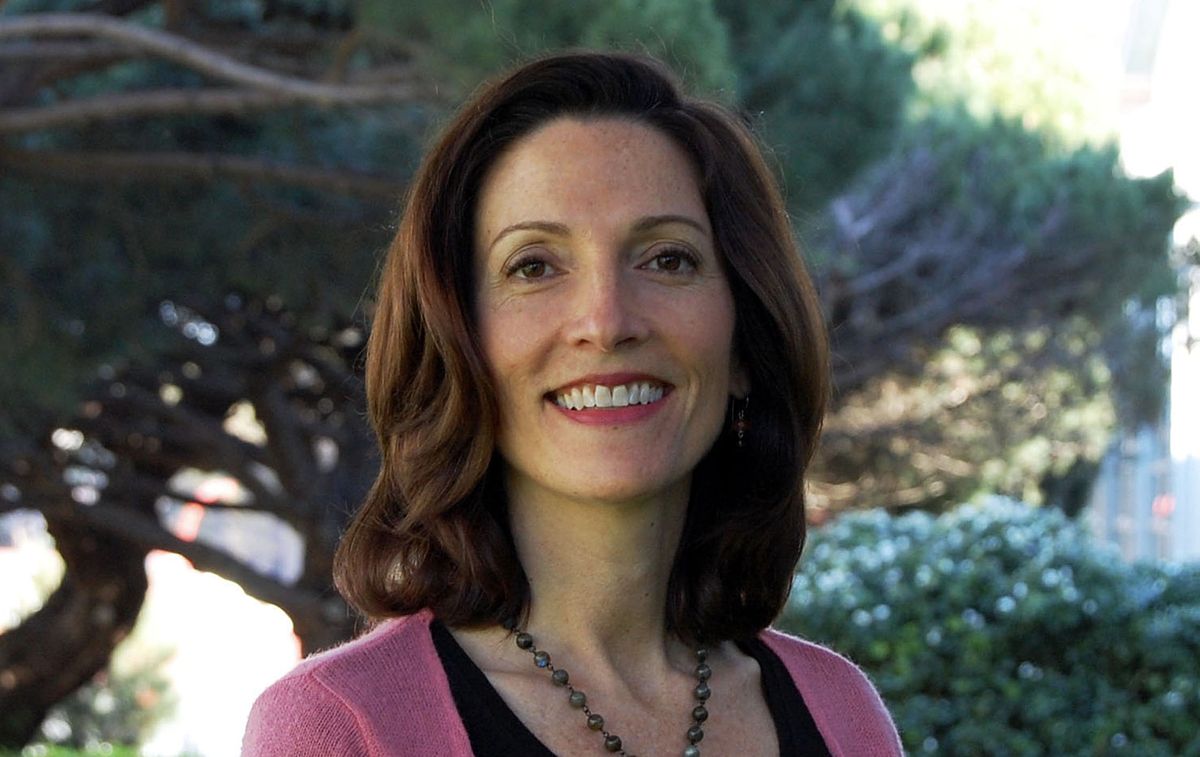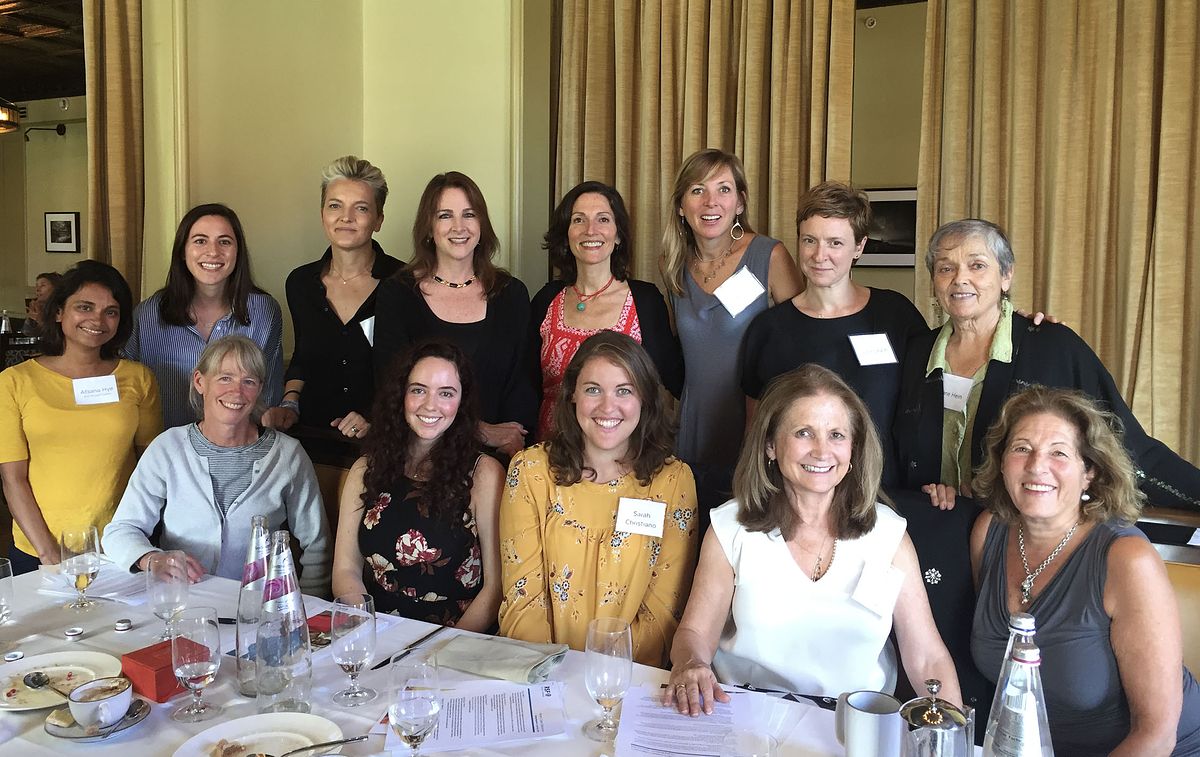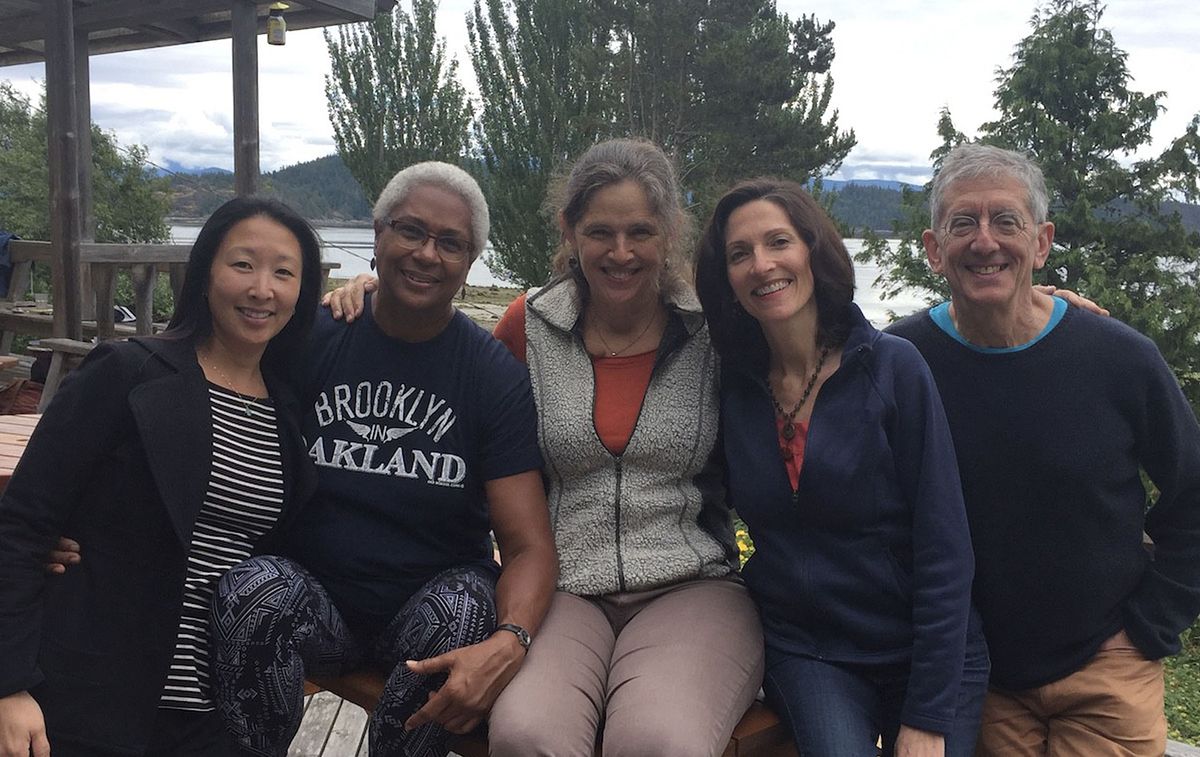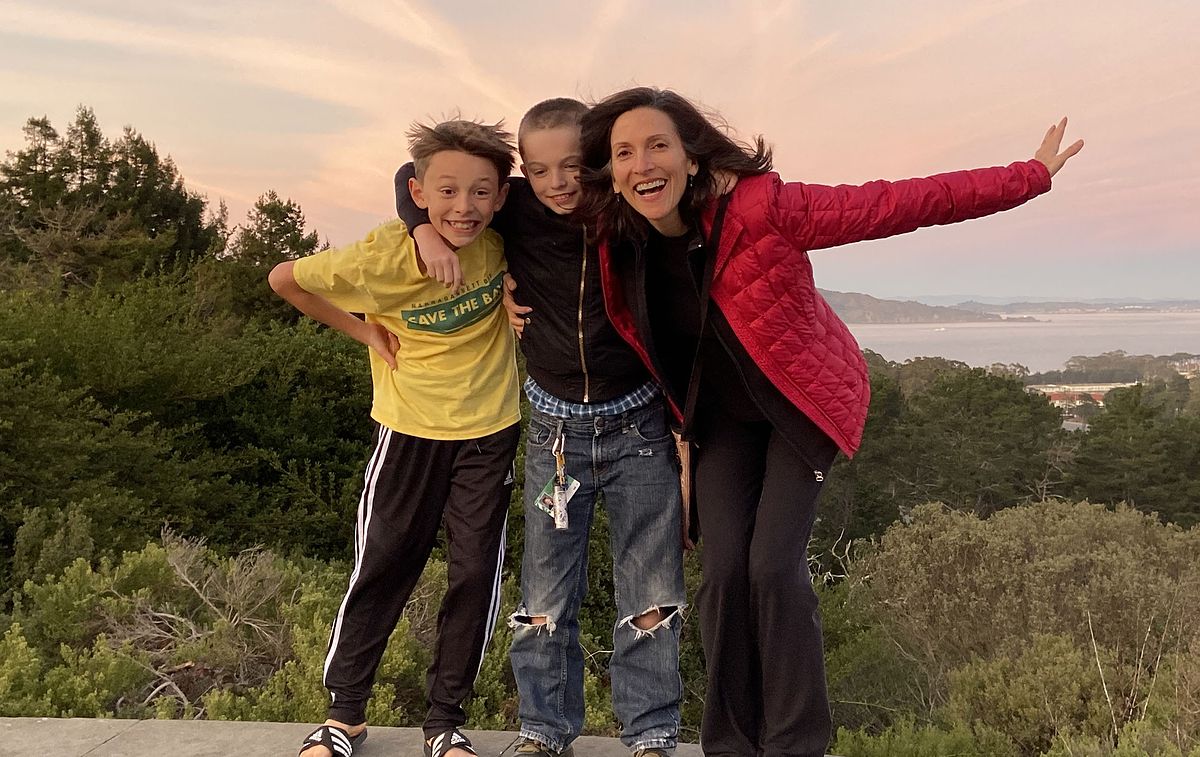Some of us might think that our money mostly sits in our bank account if we have enough of it, but the reality is that money is constantly in motion. It often moves out of our account to pay for our purchases, to settle our debts or to pay our bills. Bankers, of course, move vast sums of money around, often just digitally. But what if the movement of money was directed another way – to help solve some of society’s most pressing problems?
"To me, the purpose of money is to solve problems,” Deb Nelson tells Invest for Good. “We do have the power to activate it for good and it’s so important for us to know what our money is doing, because our money is always moving.”
Nelson is the Vice President of Client and Community Engagement at RSF Social Finance, a non-profit financial services organisation in San Francisco that seeks to transform how people relate to money. Founded in 1936 as the Rudolf Steiner Foundation, it initially only provided grants to organisations with similar values. In 1984 it widened its scope, providing capital for ground-breaking social enterprises founded by entrepreneurs and change-makers. About $700m has been either loaned, invested or given as a grant since then and the organisation has about 1600 investors, most of these individuals.
Gender bias
Nelson believes that there are many myths circulated about money, such as “Don’t talk about money, especially if you have it” or “When it comes to finances, leave it to the experts”. These are ideas, she argues, that we’ve been socialised to believe from a young age, particularly if you’re a woman or a minority. “The truth is, look at what the so-called money experts have done. Look at where we are, look at the last financial crisis. We do have the power to understand how money works,” the vice president says.
The problem, however, is that even a solid knowledge of how finance works doesn’t guarantee that the odds won’t be stacked against you. Take female entrepreneurs pitching for start-up capital, for example. They are much less likely to receive funding than a male counterpart, even when the business pitch is exactly the same. A study conducted by top universities including MIT, Wharton and Harvard Business School identified “a profound and consistent gender gap in entrepreneurship”. This explains why U.S. female founders received far fewer venture capital dollars – stats put it as low as 2.2% of $130bn - in 2018, the same percentage as the year before.
Why is this the case? Nelson says it’s bias, often implicit and unconscious: “It’s not that women aren’t starting businesses; they’re starting them in record numbers. It’s not that they’re not as good as men in leading successful companies; the studies show they’re just as good … It’s not that they don’t need the capital. It’s just bias.” She calls this a “huge market failure” and points out that the “gatekeepers” of venture capital funds tend to be men.
Backing women
This is partly one of the trends that RSF Social Finance wants to reverse. The first social enterprise the organisation funded was women-led and it continues to invest in female entrepreneurs through its Social Enterprise Lending Program and the Women’s Capital Collaborative, a philanthropic initiative that provides capital when it’s needed most. The latter helped one enterprise get off the ground just as it was running out of options. The Runway Project, piloted in Oakland, California, wanted to provide low-interest loans to African-American entrepreneurs. The founders had identified that entrepreneurs from this background are disadvantaged because they don’t have access to wealthier friends and family who can help with growth capital.

Research indicates that the racial wealth gap affects their ability to start and scale businesses. One study by the Pew Research Center found that the wealth of median white households in the U.S. is 20 times that of black households. The problem, the Runway Project concluded, was not minorities’ business ideas and entrepreneurialism, it was their access to capital.
Ironically, the Runway Project faced the same problem they were trying to solve for others – they couldn’t make the enterprise work because no one wanted to loan them the money without a dollar-for-dollar guarantee. “We gave them three different loans over time,” confirms Nelson. “The loans ended up totalling, to date, $330,000 and we gave them two technical assistance loans of $20,000 each and that’s the money they needed to unlock their potential.”
Nelson recently attended a holiday market where some of Runway Project’s entrepreneurs displayed their products and was blown away by what a difference such a loan could make. “We were able to step in at the right moment, exactly when they needed that capital. They’re doing so well they’re launching the Runway Project in Boston and then thinking about where to go next. It feels like this is a really beautiful ripple effect.” It’s an example of one of the key things RSF Finance does – to flow money to where it’s needed most.
Associative economics
By contrast, Nelson believes that too many people are still taught to follow “conventional wealth management” practices that include hoarding money and wanting to make a 15% return on investment. “The message is to keep expanding your wealth. Well, that helps some people feel like they’re winning the game, but at what cost?” she asks. “If we’re facing catastrophic fires, floods and droughts, who wins? No one wins.” Instead, RSF Social Finance argues for a stakeholder economy, one in which you consider the needs of all stakeholders, not just shareholders, an approach that Nelson calls “associative economics”. A similar approach is being advocated by other people who have spoken to Invest for Good, but it’s known in these circles as a “democratic economy”.
We do have the power to activate it for good and it’s so important for us to know what our money is doing, because our money is always moving.
In line with these ideas, RSF Social Finance hosts “community pricing gatherings” every quarter, where they discuss the interest rate that borrowers will pay and the return that investors get; this is called RSF Prime. The vice president says that most people would be “surprised” by what happens at these gatherings, with both investors and borrowers willing to compromise after sitting down to talk about their aims. It’s all about being collaborative, Nelson says. “We know that no one has all the answers. We know that top down doesn’t really work … we use a collaborative approach in everything we do, because we just find that this generates the best solutions.”
Financial activists
Being collaborative includes learning from others and teaching others what you’ve learned. Launched three years ago, the Integrated Capital Institute is one way in which RSF Social Finance is helping “financial activists” move significant amounts of money to support social enterprises tackling complex social and environmental problems. "These are change-makers at heart and they either are, or will, influence capital to effect positive, systemic change” Nelson tells Invest for Good. There are currently 74 fellows who have been through the program, with one previous fellow lending about $300m. “That’s incredible and that’s exactly what we wanted to happen. We can’t take credit for the work of our fellows,” she points out, “but we can take credit for bringing them together, and educating, supporting and inspiring them.”

It’s programs such as these that give Nelson hope for the future, as well as her work with women entrepreneurs and donors to the Women’s Capital Collaborative. “When I’m working with them, I know that real change is possible. I know that we have a shot at solving some of our most pressing social and environmental problems, and it’s a great antidote to reading the newspaper.”
Open and curious
A mother to two sons, who are 10 and 12, she spends some of her time away from her work with RSF Social Finance to explore the Bay Area, where she’s lived for 22 years. One of her passions is reading. A favourite book is Ta-Nehisi Coates’ Between the World and Me. She also visits museums and has been spending time at an educational farm and community centre in Berkeley called Urban Adamah, integrating the practices of Jewish values, sustainability, mindfulness and social action. It’s just the type of enterprise that can help people feel more connected to each other in an increasingly divided world. Nelson believes that listening to other people, even when you don’t agree with them, is important if you’re serious about creating positive and long-lasting change. “We need to be asking the right questions and staying open to solutions that we never even imagined and never even thought were possible.”
 It’s her career that has taught her the value of staying open and curious, a lesson that she’s used to navigate many twists and turns in her professional life, including stints working for the Peace Corps and American Express and, further back, an ambition to be an actor. “I loved anything creative, so I wanted to be in the creative arts,” she admits. Nelson studied to be a theatre major at Northwestern University before deciding that perhaps this insecure career path wasn’t for her. “I realised I should stay open to other ideas, and I’m so glad I did.”
It’s her career that has taught her the value of staying open and curious, a lesson that she’s used to navigate many twists and turns in her professional life, including stints working for the Peace Corps and American Express and, further back, an ambition to be an actor. “I loved anything creative, so I wanted to be in the creative arts,” she admits. Nelson studied to be a theatre major at Northwestern University before deciding that perhaps this insecure career path wasn’t for her. “I realised I should stay open to other ideas, and I’m so glad I did.”
Arguably, she’s been able to inspire more people in her role at RSF Social Finance than she would’ve been able to treading the boards. She still believes more can be done, however: “I think we’re not moving quickly enough. We need radical generosity and we need more movement on all fronts: investing, lending, giving, organising, because we ignore issues connected to money and politics at our own peril. We all need to be part of the solution and really intentional about how we move our money.”
Deb Nelson is the vice president of client and community engagement at RSF Social Finance. Visit their website to learn more about their mission and how you can get involved.

